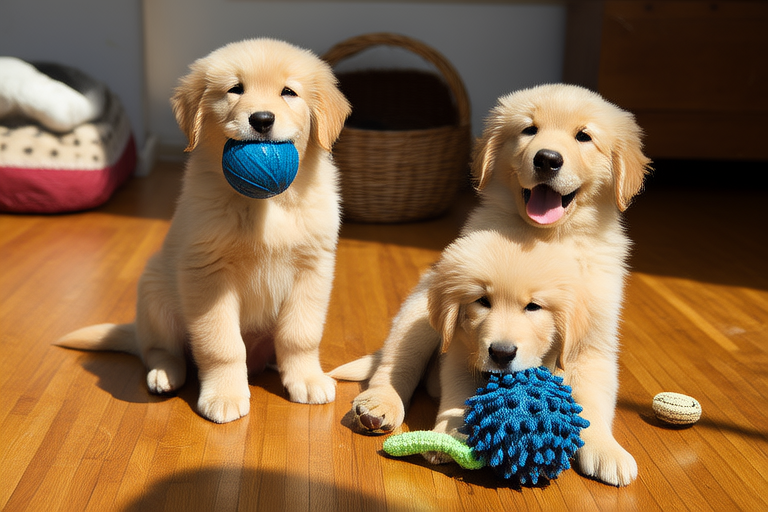Adorable Labrador Puppies: What Every Future Owner Needs To Know
Welcome to the wonderful world of Labrador puppies! These charming, energetic, and loving companions have long been a favorite among dog enthusiasts. If you’re considering bringing one into your life, this guide will provide you with all the essential information you need to ensure both you and your new furry friend have a happy and healthy relationship.
Key Characteristics of Labrador Puppies
Labrador Retrievers, or Labs as they’re affectionately called, are known for their friendly demeanor and loyalty. They come in three colors: black, yellow, and chocolate. Their double coat is short but dense, which makes them look sleek and attractive. Labs are medium to large-sized dogs, typically weighing between 55 and 80 pounds, with males being slightly larger than females.
One of the most endearing traits of Lab puppies is their playful nature. They love to fetch, swim, and engage in various activities that keep them active and entertained. However, this also means they require plenty of exercise and mental stimulation to stay happy and well-behaved. Labs are also known for their intelligence and eagerness to please, making them excellent candidates for training.
Exercise and Dietary Needs
Labrador puppies have high energy levels, so it’s crucial to meet their exercise requirements. Aim for at least two hours of physical activity daily, including walks, playtime, and swimming if possible. Swimming is particularly beneficial for Labs due to their love for water and the low-impact nature of the exercise on their joints.
When it comes to diet, consistency is key. Feed your Lab puppy a high-quality food designed for growing dogs. The amount of food should be based on their age, size, and activity level. Avoid overfeeding, as obesity can lead to serious health issues such as joint problems and diabetes. Consult with your veterinarian to determine the right portion sizes and feeding schedule for your puppy.
Training Tips
Training a Labrador puppy is both rewarding and challenging. Start early with basic commands like ‘sit,’ ‘stay,’ and ‘come.’ Use positive reinforcement techniques, such as treats and praise, to encourage good behavior. Labs respond well to consistent and patient training methods. Keep sessions short and fun to maintain their interest and enthusiasm.
Leash training is another important aspect. Begin by getting your puppy used to the leash indoors before taking them outside. Practice walking on a loose leash without pulling. This helps establish a routine and ensures safe walks in public spaces.
Common Health Issues
Like all breeds, Labs are prone to certain health conditions. Hip dysplasia and elbow dysplasia are common orthopedic issues that can cause pain and mobility problems. Regular vet check-ups and maintaining a healthy weight can help prevent these conditions. Other concerns include eye diseases like progressive retinal atrophy (PRA) and exercise-induced collapse (EIC), which can affect some Labs during intense physical activity.
Regular veterinary care, including vaccinations, dental care, and heartworm prevention, is vital for keeping your Lab healthy. Early detection of any potential health issues can significantly improve outcomes and quality of life.
Grooming Requirements
Labs have a short, straight coat that sheds moderately throughout the year. Brushing your Lab puppy regularly, especially during shedding seasons, helps reduce hair around the house and keeps their coat healthy. Baths should be given when necessary; too frequent bathing can strip natural oils from their skin.
Pay attention to their nails, trimming them when they start clicking on hard surfaces. Also, clean their ears weekly to prevent infections and check their teeth for signs of tartar buildup. Proper grooming not only keeps your Lab looking great but also strengthens the bond between you and your pet.
Socializing Your Labrador Puppy
Socialization is crucial for raising a well-adjusted Labrador puppy. Expose them to different environments, people, animals, and situations from an early age. Positive experiences will help them become confident and friendly adults.
Attend puppy classes where they can interact safely with other dogs under professional supervision. Introduce them gradually to new sights, sounds, and smells. Encourage gentle play with children and teach them how to behave appropriately around guests. Socializing takes time and effort, but it pays off in the long run by creating a balanced and sociable adult dog.
The Responsibilities and Rewards of Owning a Labrador Puppy
Owning a Labrador puppy brings significant responsibilities along with countless joys. You must commit to providing proper care, training, and companionship. Labs thrive on human interaction and require regular attention and affection. They are loyal companions who form strong bonds with their families.
Witnessing the growth and development of your Lab puppy into a confident and loving adult can be incredibly fulfilling. Their boundless energy, affectionate nature, and ability to bring joy to every day make them truly special pets. By understanding and meeting their needs, you’ll create a lifelong friendship filled with laughter, adventure, and unconditional love.
In conclusion, adopting a Labrador puppy is a big decision that requires careful consideration. With the right preparation, dedication, and love, you can enjoy a rewarding relationship with your new best friend. Take the time to learn about their specific needs and characteristics, and you’ll be setting yourself up for success as a proud Labrador owner.
